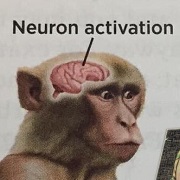|
And if so, why? What policies and costs are justified to keep people alive (housed, fed, free from pollution)? If not, what laws are justified? Do we , as another poster put it: "live in a barbaric anarchy where the strong do what they will and the weak do what they must"? I've been grappling with this for years trying to justify why we take from some to provide for others, and aside from religious arguments I can't find a good reason why people have an inviolable right to live. What's it to you that someone else gets hurt?
|
|
|
|

|
| # ? Apr 27, 2024 20:59 |
|
Hmmm these are some very heavy questions e: Do people have any inherent rights? What is an inherent right? If people have other inherent rights but not the right to live, can we just kill them thus nullifying their other rights? e2: or is this coming from one of those "property is the only inherent right" things... mrParkbench fucked around with this message at 20:27 on Feb 24, 2015 |
|
|
|
mrParkbench posted:Hmmm these are some very heavy questions No, and I don't know why the hell some people fixate on property rights above all else, it's kinda dumb to be honest. If property rights do matter, they matter less than the lives of property holders. Property is a servant, not a master. If it's not inherently wrong to kill someone, why would it be wrong to rob them?
|
|
|
|
mrParkbench posted:
Unless you can enforce it, I don't see how it's a "right".
|
|
|
|
Can you prove that people don't have an inherent right to live? Before people argue with you it would help to say what you do believe in.
|
|
|
|
TwoQuestions posted:And if so, why? What policies and costs are justified to keep people alive (housed, fed, free from pollution)? http://en.wikipedia.org/wiki/Empathy
|
|
|
|
We take from some and give to others because Society Exists, and as individuals within society, we have an interest in society functioning. If we deny that we have an interest in society functioning, and that we are entirely disconnected from other individuals, we remove ourselves from that society entirely and consign ourselves to the state of, as Aristotle put it, "either gods or monsters."
|
|
|
|
ToxicSlurpee posted:Can you prove that people don't have an inherent right to live? Before people argue with you it would help to say what you do believe in. Rights generally fall into two groups: the supposedly self-evident (these don't actually exist) or the kind that exist to guarantee a certain principle or form of society is upheld. The default state of a right is that it doesn't exist until it is given either a moral weighting or an enforcement mechanism, so no you can't prove it doesn't exist but that's totally irrelevant. So what principle would guarantee a right to live? Well egalitarianism is one; why should I die while others live (so long as my death is actually preventable)? A demand for the survival of the human race through numbers rather than any other criteria could be another. Self interest, in the sense that someone might be in a position to save my life and I'd rather they did so without thinking.
|
|
|
|
yes of course they do you dumbshit sociopath
|
|
|
|
BTW you're not a god. Condolences.
|
|
|
|
Ugh that's so much effort though.
|
|
|
|
Rights are political instruments conceived, ratified, and enforced in specific and historically contingent circumstances. In their modern form they were created by the bourgeoisie to destroy the aristocracy. Some things conceived of as rights in the US are good ideas, some are not. There is no meaningful philosophical distinction between positive and negative rights. Uhh, any other questions?
|
|
|
|
ToxicSlurpee posted:Can you prove that people don't have an inherent right to live? Isn't that what the government is doing when it executes someone?
|
|
|
|
DOCTOR ZIMBARDO posted:Rights are political instruments conceived, ratified, and enforced in specific and historically contingent circumstances. In their modern form they were created by the bourgeoisie to destroy the aristocracy. Some things conceived of as rights in the US are good ideas, some are not. There is no meaningful philosophical distinction between positive and negative rights. Uhh, any other questions? This discussion is about "inherent" rights. If it has to be ratified/etc it's not really inherent.
|
|
|
|
There are no inherent rights, because rights are completely a result of social contexts, of people agreeing that they will take certain actions and refrain from others. An actually inherent right would be a physical law of some kind.
|
|
|
|
|
TwoQuestions posted:And if so, why? What policies and costs are justified to keep people alive (housed, fed, free from pollution)? Eh. Positive rights become problematic really fast. I'd say people have a right not to be deprived of life, but not per se an inherent right to live.
|
|
|
|
TwoQuestions posted:And if so, why? What policies and costs are justified to keep people alive (housed, fed, free from pollution)? In a vacuum no because in a vacuum of any organized society there's no such things as rights or property or laws or whatever making any discussion irrelevant. Fortunately we don't exist in a total vacuum and we live in a society of civilized citizens where the right to live is one of the fundamental values in every major belief system in the world
|
|
|
|
Effectronica posted:There are no inherent rights, because rights are completely a result of social contexts, of people agreeing that they will take certain actions and refrain from others. An actually inherent right would be a physical law of some kind. Perfect, my sociopathy is completely justified by nature! *pees on a homeless person*
|
|
|
|
In the slim chance that the OP isn't a basic troll: You seem to be asking about the usefulness of empathy or compassion or altruism or whatever. It is potentially more advantageous for the individual to disregard others. However, it is advantageous to our species that the majority of us help others, even if only our close friends and family and derive satisfaction from their happiness and sadness from their disadvantages. As well as intelligence our firm social bonds our one of our species greatest evolutionary advances, which we need being physically vulnerable and long-maturing. If everyone just looked out for themselves and didn't give a poo poo we'd have died out already. In TV shows such as the hit Dexter they like to portray this ideal of the untethered sociopath who is superhuman and able to effortlessly succeed without other people holding him back. Its true some sociopaths succeed but most basically get hoist by their own petard as people stop helping them because they're being douchebags. There are no inherent rights in much the same way as there are no colours or numbers. e: I was watching Hitoshi Iwaaki's Parasyte (2014) and the protagonist has a conversation with his (ironically) symbiotic transforming alien hand who holds the same views as expressed in the OP. Communist Thoughts fucked around with this message at 21:52 on Feb 24, 2015 |
|
|
|
spacetoaster posted:This discussion is about "inherent" rights. If it has to be ratified/etc it's not really inherent. Exactly. There are no inherent rights, that exist independent of society or that existed before society. Nobody "discovered" the right of gays to get married, for instance. You don't put ideas into some sort of Lockeian microscope to see if they are truly in compliance with Natural Law.
|
|
|
|
DOCTOR ZIMBARDO posted:Exactly. There are no inherent rights, that exist independent of society or that existed before society. Nobody "discovered" the right of gays to get married, for instance. You don't put ideas into some sort of Lockeian microscope to see if they are truly in compliance with Natural Law. Obviously you are not on the Moral Majority's newsletter mailing list.
|
|
|
|
How do you know that there aren't objective, universal rights and moral truths? Just because we can't observe them with our four senses doesn't mean they aren't real and we can't observe them with our moral sense. Humans have the ability to know moral truths
|
|
|
|
wateroverfire posted:Eh. Positive rights become problematic really fast. Where does the concept of deprivation begin or end? If a society distributes wealth in a way that leaves a group of people starving, unable to combat disease, or vulnerable to exposure, are these people being deprived of life?
|
|
|
|
paranoid randroid posted:Obviously you are not on the Moral Majority's newsletter mailing list. Not since I got an hour of weekly weekend access to the Grand Theory Collider with my membership in the True Science of Marxism-Leninism Society.
|
|
|
|
wateroverfire posted:Eh. Positive rights become problematic really fast. Well, yeah, rights are messy and problematic. Hence the whole "politics" thing. Here's the thing: freedom is more than just not being trod upon. Freedom entails things like being able think independently. This isn't an inherent part of being a human, but something that requires stuff like education. Maybe you think compulsory state-funded education is "problematic" (even if you aren't a weirdo, everyone knows that its implementation is indeed an rancorous political problem), but the hypothetical totally free negative rights feral child on a desert island is less free than a person in a society that makes up rights and pretends they are objective because they are so important to our well being and necessary to have the possibility of self-actualization.
|
|
|
|
Although the phrasing of the OP is pretty repugnant, I have often found this question interesting as it pertains directly to a number of debatesówelfare, healthcare, abortion, assisted suicide, war, the death penalty, the 2nd amendment, police brutality, etc. A lot of people feel like they hold a "human life is more valuable than anything else" mentality, but that almost always immediately breaks down once nuanced situations and edge cases start to be introduced. Pretty much nobody thinks that both abortion and war should be outlawed, for instance. But both ostensibly deal with the basic immorality of killing, right? But it feels really awkward to start trying to "justify" when life is and is not valuable, and so you get responses like those above instead. Personally, I think every human has a duty to make things as good as possible for other people, so "not killing them" almost always falls easily under that subheading. (That duty, in short, stems from the fact that this is the only way for a society to truly advance: an objectivist society, with the opposite viewpoint, would almost immediately revert to the stone age, as people hosed each other over for short term gains). The only circumstances in which a human life is forfeit is 1. if they are threatening the life or livelihood of another, then lethal force can be excused, or 2. if they are terminally ill and would rather die painlessly now than after slow months or years of agony. But I wouldn't extend this right to fetuses. Feti are fungible.
|
|
|
OwlBot 2000 posted:How do you know that there aren't objective, universal rights and moral truths? Just because we can't observe them with our four senses doesn't mean they aren't real and we can't observe them with our moral sense. Humans have the ability to know moral truths This has very little to do with the simple observation that the notion of freedom of speech or the right to life are meaningless for a single person without any contact with anyone else.
|
|
|
|
|
Muscle Tracer posted:Although the phrasing of the OP is pretty repugnant, I have often found this question interesting as it pertains directly to a number of debatesówelfare, healthcare, abortion, assisted suicide, war, the death penalty, the 2nd amendment, police brutality, etc. A lot of people feel like they hold a "human life is more valuable than anything else" mentality, but that almost always immediately breaks down once nuanced situations and edge cases start to be introduced. Pretty much nobody thinks that both abortion and war should be outlawed, for instance. But both ostensibly deal with the basic immorality of killing, right? Thanks for stating my question/argument better than me. I'll update the OP to try to be less awful when I have more time later on.
|
|
|
|
OwlBot 2000 posted:How do you know that there aren't objective, universal rights and moral truths? Just because we can't observe them with our four senses doesn't mean they aren't real and we can't observe them with our moral sense. Humans have the ability to know moral truths
|
|
|
|
OwlBot 2000 posted:How do you know that there aren't objective, universal rights and moral truths? Just because we can't observe them with our four senses doesn't mean they aren't real and we can't observe them with our moral sense. Humans have the ability to know moral truths There are universal rights, and as far as I'm concerned they're just the laws of reality as we've observed them. I think the big problem here is morality. What is right and what is wrong. If we define what is right and what is wrong as what we can and can't do, respectively, then it becomes really simple. However, since we've developed reason and thought along with society, we've had to evolve our universal rights to a human level. I'm sure you don't want to be killed, just as I don't, so humanity has made an imaginary contract to ensure our lives. However, it is not set in stone, and as such, can be broken by anybody who wants to. That is why we've outlined consequences for breaking what we call "the law". At least that's how I see it.
|
|
|
|
Define: *People *inherent *right Because without that, this is pointless meandering and mincing about things casually accepted to be true.
|
|
|
|
TwoQuestions posted:And if so, why? What policies and costs are justified to keep people alive (housed, fed, free from pollution)? without getting into the arguments of where rights come from, you are making the assumption that the right must be a positive one - as in, society must move to ensure the right can be freely exercised - rather than a negative one - as in, society need not guarantee your exercise of the right, but cannot actively halt it. In free speech terms the negative right would be "the government can't censor you" whereas the positive right would be "hey you need to give this guy airtime so he can submit his views". Here, the negative right would be the government can't just kill you on a whim, whereas the positive right would be the government needs to provide the things you mention.
|
|
|
|
The simplest answer is that there are no inherent rights. Every right that we have has been fought for and maintained by force of arms or politics. The funny thing is that many actors responsible for first securing the rights we have today did believe that humans had inherent rights and were fighting to create or return some sort of Platonic order, and things like, say emancipation or the declaration of the rights of women were motivated by people believing in inalienable rights. Even though I can't see any proof of inherent rights it's probably not a good idea to question the concept too deeply, since widespread belief that a right (ie to life) is inherent may be real loving important for its maintenance.
|
|
|
|
There is an inherent right to life, yes. But it was stolen from the very pages of the Constitution many years ago by the trickster Brer Rabbit. His theft went all but unnoticed but for Thomas Jefferson, who was, they say, relieving himself out by the side of the Constitution's liberty hiding shack after a long night of rights-crafting and moral imperativization and through all the liquor a principled body needs for such delicate labors. And you had best believe that when he looked over his shoulder to the commotion of old Brer racing off into the night with a passel of self-evident principles clutched in his big rabbit teeth, he whooped himself a mighty holler, our man Jefferson, and he took after that rascal, fast as anybody can run while circumnavigating his manhood around pants what predate zippers. Racing through the night with the whole of human dignity in his mouth, that rascal Brer set forth for Benjamin Franklin's great moon ladder, which as any schoolchild knows was gifted him by Napoleon Bonaparte so that Franklin could climb to the moon, as was the fashion of the time. They climbed and they climbed and they climbed, did Jefferson and old Brer, up past the lowermost clouds and on through the middling clouds and then up on through the uppermost clouds. They climbed past where clouds are clouds up to where there's only the ideas of clouds, the floaty notions of future rainfalls. They climbed through the unanswered prayers of drought-blighted farmers, and they shouldered up past the dying cries of those who would drown in all the world's floods to come. They climbed until their brain-filled heads broke through the highest and most intangible, most perfectly inarticulate, unformed conceits of what precipitation and wind could ever be. They climbed on up and through to the moon, they say. They climbed up until the ladder fell out beneath them, up until they were lost to the phenomenal world as it is known. There's some what'll say they're still up there, that they made it to the moon's good hospitality. There's some'll say they chase one another around the lunar surface, through great space tunnels carved by Brer's ceaseless burrowing paws, and up and down all that jagged, cold, pale rock. There's those who will say if you can stare just perfectly through a night sky clear of potentialities and conceits, you can just barely perceive them chasing back and forth in the shadowy edges of your squinting eye. But then, there's those who will say most any foolish thing. My daddy always held unflinchingly to his conclusion that it was never Brer's intention to steal away the liberty of people. He always maintained by by paternal authority that Brer threw the rights of people into the darkest nascent storm he could find beneath the shadow of the moon, to spread grace on down to the world through the skies above, gliding to the earth on the wings of all the weather yet to come. He told me that's the reason why there's more and there's less dignity allowed to people at different times and places, that for all Brer's reckless gambit may liberated the idea of liberty from the grip of slavemongering hypocrites, it was done at some substantial cost. So to answer your question, yes, people have rights. They are woven through the very ceiling of the sky like the the fresco tints of the Sistine Chapel. The full measure of human dignity rains down upon us with the thundering of every storm that has yet to break.
|
|
|
|
TwoQuestions posted:
Well that's just it, once you take away a god-like figure all rights are just whatever people handwave at the time, there's no way to "prove" this sort of thing because there's no reason another person has to start from your basic principles other than you saying so. The thing is it doesn't really matter because you can argue for the things you want based on outcomes or some measure of utility. Eg. Social safety nets produce a greater societal good than alternative x. It really just sounds like you are struggling the idea of relative morality and that some things have to be taken on belief. I mean you think Murder = bad would be a pretty basic thing but you can find all sorts of groups in the past or even now who would have a very different idea of what that means than we do. Randbrick posted:There is an inherent right to life, yes. But it was stolen from the very pages of the Constitution many years ago by the trickster Brer Rabbit. His theft went all but unnoticed but for Thomas Jefferson, who was, they say, relieving himself out by the side of the Constitution's liberty hiding shack after a long night of rights-crafting and moral imperativization and through all the liquor a principled body needs for such delicate labors. And you had best believe that when he looked over his shoulder to the commotion of old Brer racing off into the night with a passel of self-evident principles clutched in his big rabbit teeth, he whooped himself a mighty holler, our man Jefferson, and he took after that rascal, fast as anybody can run while circumnavigating his manhood around pants what predate zippers. Racing through the night with the whole of human dignity in his mouth, that rascal Brer set forth for Benjamin Franklin's great moon ladder, which as any schoolchild knows was gifted him by Napoleon Bonaparte so that Franklin could climb to the moon, as was the fashion of the time. Actually, I'm going to change my answer to this.
|
|
|
|
Seeing the word "inherent" and "right" being used 14 different ways in the same paragraph is making me insane. Either we come to a consensus on what these words mean or close the thread. The idea of personhood and inherent value of life are massively complicated things that cannot be answered adequately with a single post. For example, inherent can mean "derived from some formal entity in the unknowable aether" and it can also mean "a property derived from the logical conclusion of a premise". Is a right inherent because God said it was or is a right inherent because we are social animals that have benefitted from altruism and evolved to have a vested interest in the survival of the species as a whole (in general). Rexicon1 fucked around with this message at 11:23 on Feb 25, 2015 |
|
|
|
Rexicon1 posted:Seeing the word "inherent" and "right" being used 14 different ways in the same paragraph is making me insane. Either we come to a consensus on what these words mean or close the thread. The idea of personhood and inherent value of life are massively complicated things that cannot be answered adequately with a single post. He is a sociopath and while the rest of us could hash out what a "right" really is, and what it means to a society and an individual; I doubt he could ever really understand what we were talking about. If you have to derail a thread about gentrification and then start a thread asking if people really deserve to live, you are probably a loving sociopath.
|
|
|
|
Pohl posted:He is a sociopath and while the rest of us could hash out what a "right" really is, and what it means to a society and an individual; I doubt he could ever really understand what we were talking about. If you have to derail a thread about gentrification and then start a thread asking if people really deserve to live, you are probably a loving sociopath. Oh I guess there is some context to this.
|
|
|
|
No, the rich must constantly show they give more real value and assistance to society than they leech from the workers. Otherwise it's time for the guillotine
|
|
|
|
|

|
| # ? Apr 27, 2024 20:59 |
|
TwoQuestions posted:And if so, why? What policies and costs are justified to keep people alive (housed, fed, free from pollution)? 
|
|
|






































